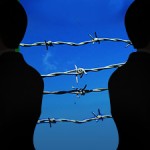Another interesting letter to editor from Dawn – the Pakistani newspaper. This one is on the Mughal history and how/why the Islamic world lost the educational and scientific edge.
Akbar refused the Printing Press brought by Portuguese in the 16th century!
I thank Prof Eice for correcting me about Aurangzeb’s stay in Deccan for 20 years as a prince. However, he has failed to mention that as an emperor he went to Deccan again in 1681 to take command of the army, never to return. During 26 years’ stay, he remained embroiled in fighting with Marathas and the remaining Muslim states of Bejapur and Golkanda till 1707 when he died and buried at Khuldabad.
His absence from the capital for almost half of his reign and endless wars were the chief causes that weakened the empire. After his death, another war of succession ensued. These wars drained the treasury, while the seat of power went to an imbecile, aged son of the deceased emperor who ruled an unmanageable and economically shattered country for about four years as Bahadur Shah I.
After his death in 1711 till 1858, anarchy prevailed. Of the next eight emperors whose combined reign spanned only for 52 years, four were murdered, one deposed and only three died peacefully on the throne.
Nadir Shah Afshar, a Turk from Iran, attacked India in 1738 and sacked Delhi. As a result, the already weak empire started disintegrating. The two important provinces of Oudh and Deccan seceded, and emboldened Maratha freebooters regained their lost positions.
Vestiges of imperial power were destroyed by the first Afghan king, Ahmed Shah Durrani, who invaded India four times before fighting Marathas at Panipat in the fifth invasion: which seldom brought solace to the emasculated Mughal authority, least of all “sustaining for 100 more years”. After dislodging Marathas, when General Lake entered Delhi in 1803 to save Shah Alam, he found the hapless old and blind Emperor in their captivity.
Prof Eice has contested that the period of turmoil and thugs does not cover the Mughal era but has admitted at the same time that thuggery was suppressed by Lord William Bentinck (1833-35) when Akbar-II was sitting on the throne of Delhi (Punjab, Bengal, Bihar and a part of Orrisa excluding). He is right that Hyder Ali and Tipu resisted British power but he must also admit that they could not sustain against their superior arms and highly disciplined forces, besides depending on the losing French power.
He has failed to appreciate that I had mentioned Al-Beruni being out of context, as the topic under discussion was the role of Muslims in establishing educational institutions in India whereas this great scholar belonged to Central Asia and that too before Muslims established themselves in India.
It was after Baghdad’s fall that Muslims’ intellectual activity came to a grinding halt in the Islamic world, including Spain which fell in 1492. This atrophied mindset continued even during the periods of great Mughals and Ottomans. Emperor Akbar though great patron of art and literature refused the printing press brought by the Portuguese in the 16th century on the plea that its use will render the ‘kaztibs’ jobless.
Mr Mansoor Alam, in his article ‘This dream of Islamic renaissance’(Jan 15), has rightly said that Jehangir showed no interest, when the British came to the court, in finding out how they had travelled across the seven seas. The Ottomans who ruled over one-third of Europe paid no attention to the discovery of Americas. Neither of the two empires built any university or encouraged the learning of science and other modern disciplines.











